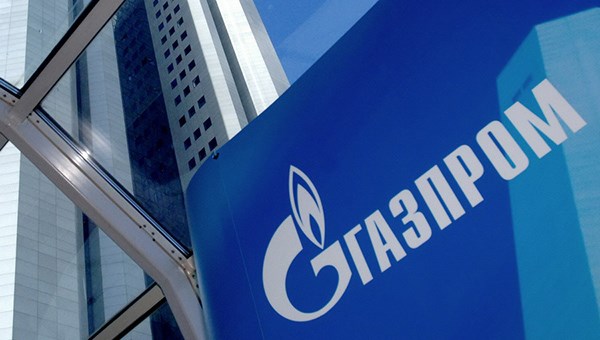Russian gas conglomerate Gazprom cut off from international capital markets
The Stockholm Arbitration Institute’s ruling obligating Gazprom to pay Naftogaz Ukraine $2.6 billion has threatened to disrupt the Russian gas company’s foreign loan plans. The loans in question would be used to finance the construction of pipelines to China, Turkey and around Ukraine.
Due to the seizure of its assets in Switzerland and the Netherlands at Naftogaz’s request, Gazprom was forced to cancel its placement of eurobonds scheduled for the middle of June, an informed source told Interfax.
The placement was meant to be part of a record in the history of Gazprom’s borrowing program: the holdings planned to attract a total of 417 billion rubles, a third of the amount needed for the major construction sites (1.2 trillion rubles).
Since the start of the year, Gazprom has already issued investors bonds in rubles (30 billion rubles), euros (750 million euros) and Swiss francs (750 million francs). The company has solicited a loan from Credit Agricole (600 million euros), and planned to borrow in British pounds in June.
However, the placement had to be called off, due to a risk which arose that the funds solicited by Gazprom would be seized immediately as part of the interim measures of the Stockholm arbitration court’s ruling, the source explained to Interfax.
Such measures were implemented first by Switzerland, where Gazprom’s subsidiaries Nord Stream AG and Nord Stream 2 AG are registered. Swiss court officers made an inventory of the companies’ property, and Nord Stream 2 AG reported that it had received a notice on the freezing of its assets.
A week later, at the start of June, the shares of Gazprom and its subsidiaries were seized in the Netherlands. Similar measures are being prepared with respect to Gazprom’s facilities in the UK, a source in the British government told Interfax-Ukraine.
The actions of the Dutch and Swiss authorities have been appealed, Gazprom announced on Thursday: The Svea District Court has passed the Russian company’s motion and issued an order to stop the implementation of the ruling by the Stockholm Arbitration Institute from February 28, 2018.
The appeal was based on Gazprom’s assertion, on the authority of a “recognized international expert linguist”, that “a significant part of the arbitration ruling was not written by the arbitrators, but by other persons,” which is a “gross violation of the arbitration agreement”.
The litigation between Gazprom and Naftogaz at the Stockholm Arbitration Institute was related to the terms of a contract on gas transit through Ukraine made eight years ago.
On February 28, the arbitration court instructed Gazprom to pay Naftogaz $4.63 billion for the gas transit shortfall. The contract stipulated that Gazprom must transport at least 110 billion cubic meters of gas to Europe through Ukraine per year. However, this volume has not been reached in the past three years, with only 93.4 billion cubic meters passing through the Ukrainian gas transit system in 2017, 82 billion in 2016, and 67.1 billion in 2015.
The arbitration institute also dismissed Gazprom’s demands to fine Naftogaz for “illegally” sampling gas transit volumes.
Taking into account what the Ukrainian company owed Gazprom, the Russian company was instructed to pay Naftogaz a balance of $2.6 billion.
The arbitrators also ordered Gazprom to pay Naftogaz $2.35 billion for the transit of 110 billion cubic meters each year until the contract expires in 2019.
